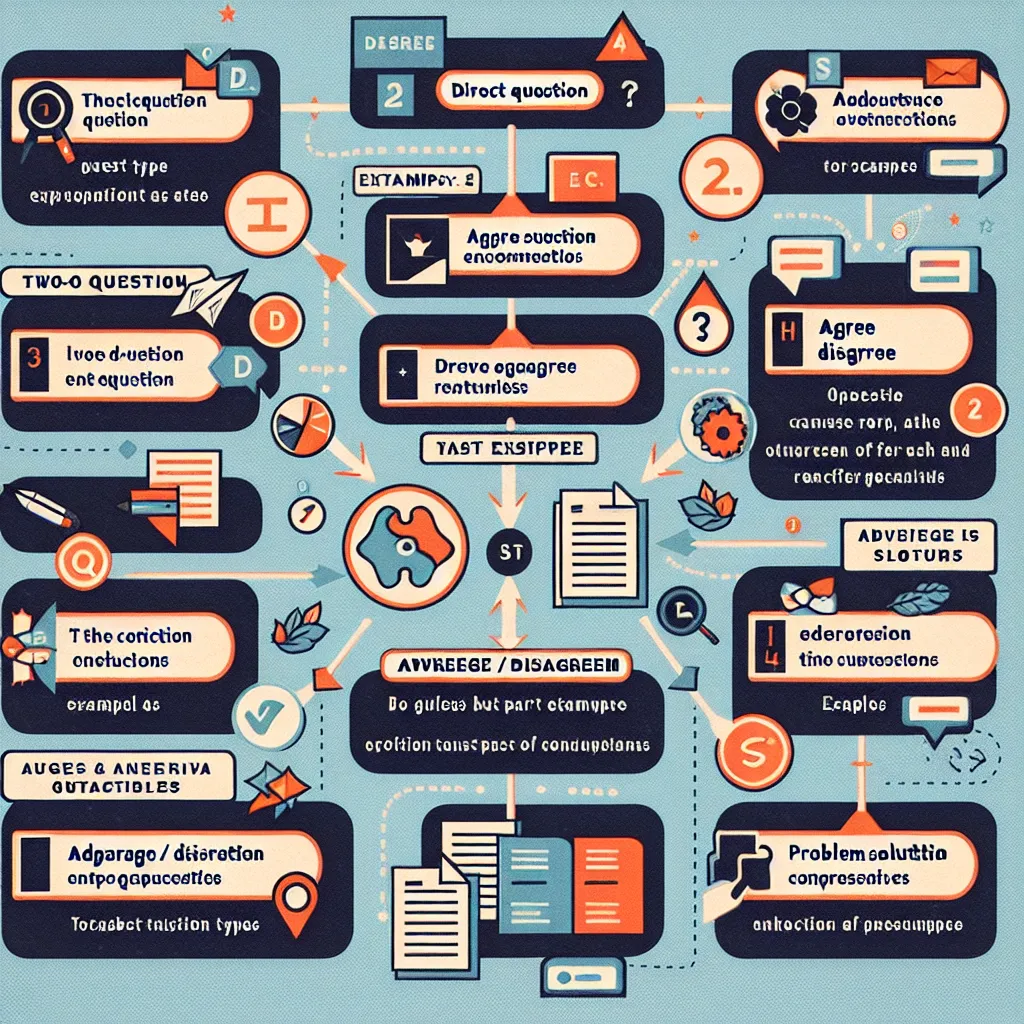Are you preparing for the Cambridge English exams and feeling overwhelmed by the Writing Task 2? Don’t worry! In this comprehensive guide, we’ll explore the different question types you might encounter in Cambridge Writing Task 2, helping you to approach each with confidence and skill.
Understanding Cambridge Writing Task 2
Cambridge Writing Task 2 is a crucial component of various Cambridge English exams, including FCE (B2 First), CAE (C1 Advanced), and CPE (C2 Proficiency). This task assesses your ability to produce a well-structured, coherent essay on a given topic. Understanding the different question types is essential for success in this part of the exam.
 Cambridge Writing Task 2 Question Types
Cambridge Writing Task 2 Question Types
The Main Cambridge Writing Task 2 Question Types
1. Opinion Essays
In opinion essays, you’re asked to present your personal viewpoint on a specific issue.
Key features:
- Express and justify your opinion
- Consider opposing viewpoints
- Use formal language
Example question:
“Some people believe that social media has a negative impact on society. To what extent do you agree or disagree?”
2. Argument Essays
Argument essays require you to discuss both sides of an issue before presenting your own opinion.
Key features:
- Present balanced arguments for both sides
- Conclude with your personal stance
- Use objective language
Example question:
“Discuss the advantages and disadvantages of working from home. Give your own opinion.”
3. Problem and Solution Essays
These essays ask you to identify a problem and propose potential solutions.
Key features:
- Clearly define the problem
- Suggest multiple solutions
- Evaluate the effectiveness of each solution
Example question:
“Many cities face increasing traffic congestion. What are the causes of this problem, and what measures can be taken to solve it?”
4. Compare and Contrast Essays
In these essays, you need to highlight similarities and differences between two subjects.
Key features:
- Identify clear points of comparison
- Discuss both similarities and differences
- Maintain a balanced approach
Example question:
“Compare the benefits of living in a big city with those of living in a small town.”
5. Cause and Effect Essays
These essays require you to examine the reasons for a situation and its consequences.
Key features:
- Clearly identify causes and effects
- Establish logical connections
- Use appropriate linking words
Example question:
“What are the causes of obesity in children, and what are its effects on their health and well-being?”
Tips for Approaching Cambridge Writing Task 2
Analyze the Question Carefully
Before you start writing, make sure you understand what the question is asking. Identify the key words and the specific task requirements.
Plan Your Essay
Spend a few minutes outlining your essay. This will help you organize your thoughts and ensure a logical structure.
Use Appropriate Language
Remember to use formal language and a range of vocabulary and grammatical structures appropriate to your level.
Support Your Arguments
Always provide examples or evidence to support your points. This demonstrates your ability to develop and explain your ideas.
Manage Your Time Wisely
In the exam, you’ll have limited time. Practice writing essays within the time constraints to improve your speed and efficiency.
Common Mistakes to Avoid
- Misinterpreting the question
- Not addressing all parts of the task
- Using informal language or slang
- Writing off-topic
- Not providing enough supporting details
Next Steps in Your Preparation
Now that you’re familiar with the Cambridge Writing Task 2 question types, it’s time to put your knowledge into practice:
- Find sample questions for each type and practice writing responses.
- Ask a teacher or language exchange partner to review your essays and provide feedback.
- Read model answers to understand what examiners are looking for.
- Time yourself when writing practice essays to simulate exam conditions.
By understanding these question types and following our tips, you’ll be well-prepared to tackle any Cambridge Writing Task 2 question that comes your way. Remember, practice makes perfect, so keep writing and refining your skills. Good luck with your Cambridge exam preparation!
[internal_links]
Do you have any specific questions about Cambridge Writing Task 2? Feel free to ask in the comments below, and don’t forget to check out our other articles on Cambridge exam preparation for more valuable insights and tips.




